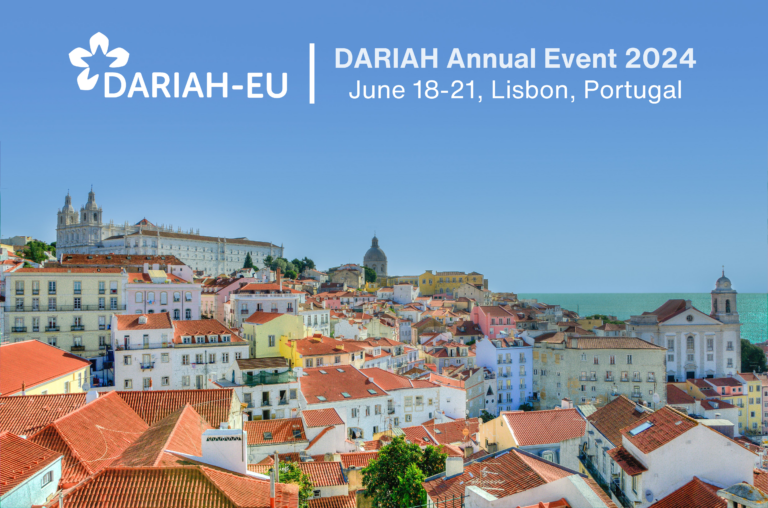DARIAH ANNUAL EVENT 2024
Workflows: Digital Methods for Reproducible Research Practices in the Arts and Humanities
Lisbon, Portugal, June 18-21, 2024 (in-person conference)
Arts and humanities researchers tend to be multitasking heroes and versatility buffs. This is probably not a matter of choice. Whether we work on digital editions of literary works, analyse historical events by creating and exploiting corpora of digitised newspapers, or model archaeological sites in 3D, our research processes are often quite complex: they involve multiple steps, different tools and a combination of methods. We are no strangers to heterogeneous datasets, modular system architectures, metadata crosswalks and software pipelines. And we are increasingly aware of the importance of data sharing and the notion of reproducible research in the age of Open Science. A scholarly process may start with identifying and collecting data and end with the publication of some research outputs, but the very beginning and the very end never tell the full story of the research data lifecycle.
Building on the topic of last year’s Theme Call, the DARIAH Annual Event 2024 will be dedicated to the topic of Workflows: Digital Methods for Reproducible Research Practices in the Arts and Humanities. We are looking for contributions that explore, assess, analyse and embody the challenges of designing, implementing, documenting and sharing digitally-enabled workflows in the context of arts and humanities research from a technical, methodological, infrastructural and conceptual point of view. The Annual Event will be held in person in Lisbon, Portugal, June 18-21. Accepted submissions are expected to be presented in-person.
Questions that we would like to see addressed include but are not limited to: what is the state of the art in research workflows in the digital arts and humanities? What are we doing well, and what should we do better? How can we evaluate the appropriateness of a workflow or assess its efficiency? What makes a workflow innovative? Are there differences in the way we define and implement workflows in different scholarly domains? What is the role of interdisciplinarity: how can collaborations between experts from different disciplines (arts, humanities, technology etc.) lead to innovative perspectives and more comprehensive solutions to specific challenges? What does it mean for a workflow to be ethical, reproducible and sustainable? What kind of documentation is necessary and at what level of granularity? Are there modelling, standardisation or data management frameworks that make the documentation of workflows easier? What is the role of training and education in preserving and communicating workflows? How do we — both institutionally and conceptually — become better aware of the tacit knowledge and hidden costs which seem to be embedded in most of our day-to-day professional activities? To what extent is the increasing use of artificial intelligence (AI) affecting our research workflows? What will be the role of responsible, human-centric AI in the future of research workflows? Finally, what should DARIAH do — in addition to treating workflows as a particular content type on the SSH Open Marketplace — to help researchers develop, deploy and disseminate workflows that contribute to the interoperability of data, tools and services?
Important dates
- Submissions possible from: December 6, 2023
- Deadline for submissions: February 4, 2024
- Notification of acceptance: expected by March 25, 2024
For more visit: DARIAH ANNUAL EVENT 2024

